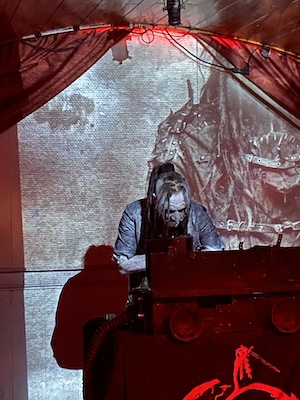 The evening started unexpectedly early: the Mortiis show was pushed up from a typical eight o’clock start time to five-thirty at Kungfu Necktie, a well-established sore-thumb in the embarrassingly “up-and-coming” Fishtown neighborhood of Philadelphia. My heart went out to the archaic ghoul – all of us performers know how annoying a last-minute schedule change can be – as I received my second surprise of the night. Sitting down for pre-show cocktails at an attractive new bar less than a block away, my girlfriend and I realized, after ordering our drinks, that the entire cocktail menu was crafted from non-alcoholic spirits. Whoops! A full list of cocktails under fifteen bucks should’ve been the giveaway in this part of town, no matter that the descriptions still featured words like “gin” and “bourbon”. A modest suggestion: they should cutely modify the names of fake spirits the same way they do it for vegan meat substitutes. Had I seen V’dka and not-tequi-LAH listed, I swear I would’ve figured it out sooner.
The evening started unexpectedly early: the Mortiis show was pushed up from a typical eight o’clock start time to five-thirty at Kungfu Necktie, a well-established sore-thumb in the embarrassingly “up-and-coming” Fishtown neighborhood of Philadelphia. My heart went out to the archaic ghoul – all of us performers know how annoying a last-minute schedule change can be – as I received my second surprise of the night. Sitting down for pre-show cocktails at an attractive new bar less than a block away, my girlfriend and I realized, after ordering our drinks, that the entire cocktail menu was crafted from non-alcoholic spirits. Whoops! A full list of cocktails under fifteen bucks should’ve been the giveaway in this part of town, no matter that the descriptions still featured words like “gin” and “bourbon”. A modest suggestion: they should cutely modify the names of fake spirits the same way they do it for vegan meat substitutes. Had I seen V’dka and not-tequi-LAH listed, I swear I would’ve figured it out sooner.
After quickly departing and meeting friends for (boozed-up) cocktails at a different spot across the street from Kungfu Necktie, we sauntered under the El and into the corner club, evading the final raindrops of the day for an evening of dark electronics. Already on stage were Sombre Arcane, a staunchly medieval synth duo from Worcester, MA. Presenting two sizable racks of synths, they firmly established the evening’s vibe, what with somber-marching, fantasy-gaming instrumentals that ebbed and flowed like a horse-led caravan over a craggy war-torn mountainside. They reminded me of Carrot Top in the way that they made sure to give every prop in their trunk a whirl: glowing orb, check; triumphant animal horn, check; replica 1600s-era lyre, check; wizard and barbarian costumes, double check. A friend remarked that the wizard’s cloak was wrinkled in a manner ill-befitting the medieval era (“the creases looked like a picnic tablecloth!”) but the wiz’s spirited thumping of a large staff in time with the occasional synthesized bass-drum thumps proved an entertaining distraction from any period-appropriate wardrobe inaccuracies.
The jovial atmosphere established by Sombre Arcane was roundly shushed by the presence of the next artist, seminal Swedish power-electronics artist Brighter Death Now. Wearing the typical elder noise-guy uniform of matching black short-sleeve button-up / train-conductor cap and hunched over the typical “noise table” array of effects pedals with digital and analog hardware elements, he whisked the crowd away from any sort of friendly cosplay atmosphere into something far more elemental and crushing. Considering Brighter Death Now’s dead-serious demeanor and physical appearance matching any given member of Genocide Organ or Grey Wolves, I had to wonder if he was aware of how soothing his set was; there was a lulling comfort to his mechanical rhythms, long-tailed static pulses and monk-like vocals distorted into oblivion. Many pretenders have run this style into the ground over the past few decades, but his concise set was artful yet unpretentious, a distillation of the best elements of death-industrial from one of its heralded originators. I doubt he’ll be back around here anytime soon, so I felt extra lucky to catch him while I had the chance. You don’t get into making this kind of music because you want to greet strangers around the globe and sell them t-shirts.
It wasn’t even 9:00 PM – was it even fully dark outside yet? – as we maintained our solid crowd position for the arrival of Mortiis. Kungfu Necktie is decorated like a Hollywood set designer’s idea of a wild rock club – part The Bronze from Buffy: The Vampire Slayer and part PCU common area, with Halloween masks repurposed as glowing orange lights and a punk rocker’s take on TGI Friday’s-esque bric-a-brac, all coated in a thin layer of stickers of terrible bands no one has ever heard of, not even me. Could’ve used a few more cobwebs (real or fake) or splatters of corn-syrup blood on the walls for Mortiis, but the well-worn rock-club atmosphere didn’t necessarily clash with his brutalist rig. It appeared to be a rusted-out steam-punk engine shell on a table, not unlike something Bob Bert would bang on alongside Jon Spencer. It surely concealed some modern technology within – an electronic keyboard, at the very least – but I appreciated the strict attention to visual and sonic detail, no half-assing, not even for this motley Kungfu Necktie audience. Mortiis sported his trademark prosthetic nose and cheeks, and his skin was painted a distressing shade of grey to match, from his forearms up over his ears and across the shaved sides of his head. As advertised, he played two of his 1994 albums back to back, long suites of repeating medieval motifs that relied on sullen, forlorn melody over rhythm or heaviness. A projected slideshow cycled through black-and-grey etchings of ancient depressive landscapes behind him, images you might expect to float through J.R.R. Tolkien’s dreams during a fitful night of sleep. Occasional shots of low-end consistently reverberated in an unnatural cadence, a nice trick that had me wondering if any ancient spirits might have had a small hand in the proceedings. It’s undeniable that Mortiis more or less created what eventually became categorized as “dungeon synth”, and from his shirt designs brandishing the slogan “dark dungeon music”, he appears fully aware of the legacy he fostered and interested in ensuring that he receives the respect he’s due. If anyone’s expectations remained unsatisfied at the end of his extensive set, there was simply nothing to be done to please them.
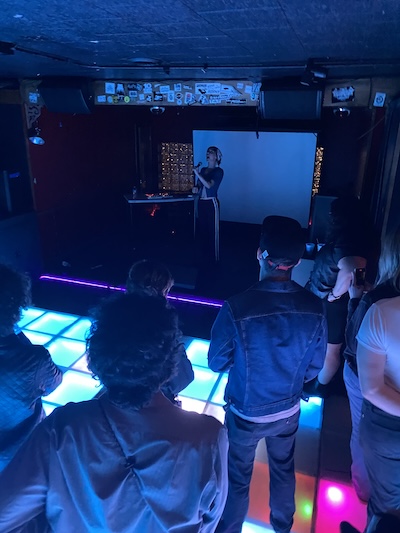 The Kungfu Necktie show’s unexpected early arrival proved to be fortuitous, as I quickly snaked my way through the crowd without anyone’s eyeshadow smudging my shirt while Mortiis plucked his final somber notes. Mary Jane Dunphe was set to headline her own show a couple miles down the road at Foto Club, a veritable island of punk rock ill repute far from the city’s more favored social enclaves. It’s an indoor-outdoor “private” club well equipped for all bacchanalian purposes, from drum n’ bass DJ nights to egg-punk fests to anything that starts with the term “after hours”. Punk bands record their seven-inches there now, too! I’m not saying with certainty that you could find a poorly lit corner of the compound around 4:00 AM, pass out and wake up the next morning to discover that you’re the new DJ or janitor, but I’m not ruling it out, either.
The Kungfu Necktie show’s unexpected early arrival proved to be fortuitous, as I quickly snaked my way through the crowd without anyone’s eyeshadow smudging my shirt while Mortiis plucked his final somber notes. Mary Jane Dunphe was set to headline her own show a couple miles down the road at Foto Club, a veritable island of punk rock ill repute far from the city’s more favored social enclaves. It’s an indoor-outdoor “private” club well equipped for all bacchanalian purposes, from drum n’ bass DJ nights to egg-punk fests to anything that starts with the term “after hours”. Punk bands record their seven-inches there now, too! I’m not saying with certainty that you could find a poorly lit corner of the compound around 4:00 AM, pass out and wake up the next morning to discover that you’re the new DJ or janitor, but I’m not ruling it out, either.
My crew made it to Foto Club with enough time for me to buy and consume a home-made tofu pupusa from the punk with a fully tattooed skull that was vending them inside the club before finding our way upstairs to the flashing disco dance-floor from where the crowd would watch Mary Jane Dunphe perform. Singing along to backing tracks, she played guitar on the opening song, the calmest MJ Dunphe live moment I’ve ever witnessed. Had she finally mellowed out, her inner lightning bolt reduced to a manageable pulse? The answer is resoundingly no, as the guitar only lasted a song before she was stomping, dancing, posing and thrusting while running through numerous bangers from her fantastic debut full-length, last year’s Stage Of Love. I don’t think she was wearing tap shoes, but her dancing was so undeniably physical that the stomp of her shoes acted as a sonic percussive element, spinning circles within circles as her legs shook the rhythm to life. The PA system was shaky but not unexpectedly so, and while Dunphe’s body frequently moved around and beyond the active range of her microphone, I didn’t need to hear her voice perfectly to process the vivid emotions she was communicating. I have the album (and the Sub Pop single, and the CC Dust records, and the Vexx records…), so I know she sounds half like Björk going through a terrible breakup, half like Kate Bush giving birth to twins when properly amplified. It was a quick set, too quick if I’m feeling greedy, but the energy expended was greater than the sum total of what I witnessed at Kungfu Necktie, and the bar, and the non-alcoholic bar. Just a couple of miles apart, Mortiis was the wet, fertile soil birthing ancient strains of lichens and Mary Jane Dunphe was the laser light-show ripping a hole in the sky.
Abe Froman Baltimore Is Scum 7″ (Salinas / Big Dreams)
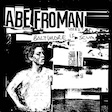 You say: why spend your time and money reissuing a pop-punk EP nearly a quarter of a century old? I say: well, why do anything at all? Why do we even exist, man?? No one can answer any of these questions with any sort of authority, so let’s all sit back and check out what Abe Froman sounded like in the year 2000 on their debut six-song seven-inch. I don’t think I purposely avoided the group back then, but I never made any effort to check them out, due to a perceived association with the likes of folk-punkers Soophie Nun Squad, Defiance, Ohio and Against Me!, music that I abhorred then and have no intentions of going back to see if there’s anything I missed now. While Abe Froman’s connections to that scene may have existed socially, I’m relieved to learn that their music falls closer to traditional ’90s DIY pop-punk, informed by Lookout! and K bands but lacking a large national audience or studio budget. There are certain bands that I’m reminded of while listening, but they’re too extremely provincial for me to even list here, on a website where I already write as if every reader has the exact same record collection as me. (Fine, here are three: Halflings, Aisle Nine and Grieving Eucalyptus. Happy?) Anyway, all those bands are gone now, Abe Froman too, but the folks over at Salinas and Big Dreams decided Baltimore Is Scum needed to make the rounds once again, in our ever more fractured and corporatized punk rock underground.
You say: why spend your time and money reissuing a pop-punk EP nearly a quarter of a century old? I say: well, why do anything at all? Why do we even exist, man?? No one can answer any of these questions with any sort of authority, so let’s all sit back and check out what Abe Froman sounded like in the year 2000 on their debut six-song seven-inch. I don’t think I purposely avoided the group back then, but I never made any effort to check them out, due to a perceived association with the likes of folk-punkers Soophie Nun Squad, Defiance, Ohio and Against Me!, music that I abhorred then and have no intentions of going back to see if there’s anything I missed now. While Abe Froman’s connections to that scene may have existed socially, I’m relieved to learn that their music falls closer to traditional ’90s DIY pop-punk, informed by Lookout! and K bands but lacking a large national audience or studio budget. There are certain bands that I’m reminded of while listening, but they’re too extremely provincial for me to even list here, on a website where I already write as if every reader has the exact same record collection as me. (Fine, here are three: Halflings, Aisle Nine and Grieving Eucalyptus. Happy?) Anyway, all those bands are gone now, Abe Froman too, but the folks over at Salinas and Big Dreams decided Baltimore Is Scum needed to make the rounds once again, in our ever more fractured and corporatized punk rock underground.
Ambient Noise I Was There At The Texas Chainsaw Massacre 12″ (Last Laugh)
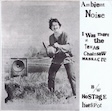 Ambient Noise was a rural first-wave punk project active before both “ambient” and “noise” became recognized genres of their own. The sole seven-inch release from this group is a tasty Killed By Death morsel, so the generous archivists over at Last Laugh whipped it up into a twelve-inch EP, complete with two tracks that didn’t appear on the original single. Not sure where those two other songs came from, but they certainly fit right in, presumably from the same (or a closely-related) recording session. It’s all lightweight, goofball punk in its purest form, with song titles that probably did ruffle a few feathers back in the day, from the titular celebration of horror to “Test Tube Babies” and “Hostage Hotspot”. Schlock and obnoxiousness are key, but Ambient Noise keep it fairly under control in the studio, much closer to Jonathan Richman’s school of punk than Johnny Rotten’s. The music has some of that good-time rock n’ roll feel that predates new-wave, even if the lyrics revel in topics inappropriate for Thanksgiving table talk circa 1980. Most of these Last Laugh releases are bare-bones affairs, and this one mostly is too, though I appreciate the insert, which brandishes a Warner Bros. Records rejection letter sent to the band back in the day. What could be a prouder badge of honor for nerdy, outcast punks at the dawn of the ’80s than a formal letter confirming that these old industry squares don’t know the first thing about real rock music?
Ambient Noise was a rural first-wave punk project active before both “ambient” and “noise” became recognized genres of their own. The sole seven-inch release from this group is a tasty Killed By Death morsel, so the generous archivists over at Last Laugh whipped it up into a twelve-inch EP, complete with two tracks that didn’t appear on the original single. Not sure where those two other songs came from, but they certainly fit right in, presumably from the same (or a closely-related) recording session. It’s all lightweight, goofball punk in its purest form, with song titles that probably did ruffle a few feathers back in the day, from the titular celebration of horror to “Test Tube Babies” and “Hostage Hotspot”. Schlock and obnoxiousness are key, but Ambient Noise keep it fairly under control in the studio, much closer to Jonathan Richman’s school of punk than Johnny Rotten’s. The music has some of that good-time rock n’ roll feel that predates new-wave, even if the lyrics revel in topics inappropriate for Thanksgiving table talk circa 1980. Most of these Last Laugh releases are bare-bones affairs, and this one mostly is too, though I appreciate the insert, which brandishes a Warner Bros. Records rejection letter sent to the band back in the day. What could be a prouder badge of honor for nerdy, outcast punks at the dawn of the ’80s than a formal letter confirming that these old industry squares don’t know the first thing about real rock music?
Baby Tyler Band Baby Tyler Band LP (Night Bell)
 Interesting choice of cover photo here, as Baby Tyler Band are caught in a moment of clearly not rocking out. The bassist is checking his pedal and a guitarist is actually stroking his chin in a moment of contemplation, waiting for things to get started. Maybe it was simply the only shot they had with everyone in the frame, as Baby Tyler Band’s amped-up and rambunctious garage-punk isn’t made for standing still. They generally work a variety of mid-tempos with almost grunge-like grooves if the riffs had any whiff of metal to them (they don’t), and it gives these songs a sweaty liveliness that might’ve been lost if they sped things up (or slowed ’em down). The back cover states that the album was recorded live, and while I’m fine with bands recording however they want, the energy and cohesion that emanates off this record is undeniable, right down to the dual guitar solos of closer “Overnight Sensation”, vocalist Baby Tyler soaked through his shirt at this point and snarling as fiercely as Bobby Soxx after working a double shift at his uncle’s pizza parlor. Their style of music doesn’t demand to be “locked in” to work, but Baby Tyler Band clearly came to the studio well-rehearsed and able to let it fly, no production trickery needed. There’s a chance it might be a little too aggro for the garage scene and too rockin’ for the mosh crowd but it’s just right for me.
Interesting choice of cover photo here, as Baby Tyler Band are caught in a moment of clearly not rocking out. The bassist is checking his pedal and a guitarist is actually stroking his chin in a moment of contemplation, waiting for things to get started. Maybe it was simply the only shot they had with everyone in the frame, as Baby Tyler Band’s amped-up and rambunctious garage-punk isn’t made for standing still. They generally work a variety of mid-tempos with almost grunge-like grooves if the riffs had any whiff of metal to them (they don’t), and it gives these songs a sweaty liveliness that might’ve been lost if they sped things up (or slowed ’em down). The back cover states that the album was recorded live, and while I’m fine with bands recording however they want, the energy and cohesion that emanates off this record is undeniable, right down to the dual guitar solos of closer “Overnight Sensation”, vocalist Baby Tyler soaked through his shirt at this point and snarling as fiercely as Bobby Soxx after working a double shift at his uncle’s pizza parlor. Their style of music doesn’t demand to be “locked in” to work, but Baby Tyler Band clearly came to the studio well-rehearsed and able to let it fly, no production trickery needed. There’s a chance it might be a little too aggro for the garage scene and too rockin’ for the mosh crowd but it’s just right for me.
Bilders Dustbin Of Empathy LP (Grapefruit / Sophomore Lounge)
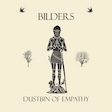 It really seems like the most evil white dudes among us live the longest, but occasionally a clever, benevolent soul perseveres, as is the case with New Zealand singer/writer Bill Direen. I’m not sure how old he is exactly but anyone who was playing music in the early ’70s has to be up there now, and he’s gotta be one of the coolest of his graduating class, having made a name for himself in the ’80s New Zealand underground, consistently writing and recording. I had the pleasure of seeing him perform a couple years ago, and his command of both the audience and his songs was as charming as it was impressive. This new album from his on-again off-again group Bilders is weathered and rich, a soft, tender record full of the wisdom and skill that can only be developed over decades of artistic exploration. Thanks to the somber, alt-country-adjacent tone and Direen’s weary voice, there’s an aura similar to Johnny Cash’s final Rick Rubin sessions, though unlike Cash’s solitary approach, Direen’s music is community-based, still very much in tune with the world rather than resigned to departing it. His lyrics are quick-witted and insightful, sure to please the listeners that make the effort to really listen. Dustbin Of Empathy imagines psychedelia not as an escape from reality but rather a lens through which to view it.
It really seems like the most evil white dudes among us live the longest, but occasionally a clever, benevolent soul perseveres, as is the case with New Zealand singer/writer Bill Direen. I’m not sure how old he is exactly but anyone who was playing music in the early ’70s has to be up there now, and he’s gotta be one of the coolest of his graduating class, having made a name for himself in the ’80s New Zealand underground, consistently writing and recording. I had the pleasure of seeing him perform a couple years ago, and his command of both the audience and his songs was as charming as it was impressive. This new album from his on-again off-again group Bilders is weathered and rich, a soft, tender record full of the wisdom and skill that can only be developed over decades of artistic exploration. Thanks to the somber, alt-country-adjacent tone and Direen’s weary voice, there’s an aura similar to Johnny Cash’s final Rick Rubin sessions, though unlike Cash’s solitary approach, Direen’s music is community-based, still very much in tune with the world rather than resigned to departing it. His lyrics are quick-witted and insightful, sure to please the listeners that make the effort to really listen. Dustbin Of Empathy imagines psychedelia not as an escape from reality but rather a lens through which to view it.
Burial / Kode9 Phoneglow / Eyes Go Blank 12″ (Hyperdub)
 So many artists have aped Burial over the past couple decades now, taking indirect or blatant influence from his production style and techniques, but there’s still only one Burial, innit? I fell hard for his music following the first full-length and have been as enraptured as the next guy typing on his laptop about music ever since, and while the pretty significant catalog of Burial tunes can point to different moods and directions (there’s quite of lot of beatless ambient under his belt now, for instance), it’s nice to jump into the immediate comfort of “Phoneglow”. This is classic, timeless Burial from the jump, propelled by the skip of a broken-beat and the various ghosts of rave: disembodied R&B vocal hooks, stabbing trance synths, a heady swirl of shiny-wet London streets and the magic that flows through them, hopes and dreams dancing in unison with melancholy and regret. Phew! Kode9 is probably the first other name anyone thinks of when they think of Burial, thanks to the years-long collaborations in art and business, and while he doesn’t have the same distinctly defined sound, that’s not a negative. “Eyes Go Blank” is a timely-yet-fresh collision of junglist beat-mapping and an aggressively extraterrestrial vibe conjured by (probably AI?) vocals and pounding synths, not unlike Amnesia Scanner’s Another Life. Neither of these guys have anything to prove, and yet here they are, proving the hell out of it anyway.
So many artists have aped Burial over the past couple decades now, taking indirect or blatant influence from his production style and techniques, but there’s still only one Burial, innit? I fell hard for his music following the first full-length and have been as enraptured as the next guy typing on his laptop about music ever since, and while the pretty significant catalog of Burial tunes can point to different moods and directions (there’s quite of lot of beatless ambient under his belt now, for instance), it’s nice to jump into the immediate comfort of “Phoneglow”. This is classic, timeless Burial from the jump, propelled by the skip of a broken-beat and the various ghosts of rave: disembodied R&B vocal hooks, stabbing trance synths, a heady swirl of shiny-wet London streets and the magic that flows through them, hopes and dreams dancing in unison with melancholy and regret. Phew! Kode9 is probably the first other name anyone thinks of when they think of Burial, thanks to the years-long collaborations in art and business, and while he doesn’t have the same distinctly defined sound, that’s not a negative. “Eyes Go Blank” is a timely-yet-fresh collision of junglist beat-mapping and an aggressively extraterrestrial vibe conjured by (probably AI?) vocals and pounding synths, not unlike Amnesia Scanner’s Another Life. Neither of these guys have anything to prove, and yet here they are, proving the hell out of it anyway.
Callahan & Witscher Think Differently LP (Post Present Medium)
 It’s starting to feel like I’ve been living in the ’90s for a quarter of a century now. There was a brief respite in the ’00s, but since roughly 2010 the amount of ’90s nostalgia, rehashing, excavation and re-interpretation has been staggering. This new album from Jack Callahan and Jeff Witscher looks like Spacehog posing for an Apple ad that’s meant to tempt college freshmen into buying those big colorful iMacs, so while I was gripping my chair in preparation for another tasteless nostalgia blast, I was encouraged by three bits of information: Think Differently was released by the great avant-punk label Post Present Medium, Callahan has done time with Home Blitz and Sunburned Hand of The Man, and Witscher’s prior aliases include Impregnable and Rene Hell. True to their experimental, sonically-antagonistic natures, Think Differently sounds nothing like their prior groups, and wields its ’90s nostalgia like Neil Hamburger’s punchlines. They’ve pastiched sound-alike bits and bobs from the sunshine-y alt-purgatory of groups like Sublime, Len and Sugar Ray into a Frankenstein’s monster of self-aware wit, pop hooks and dry cynicism. It’s like a big smile that starts to seep blood, akin on some level to 100 Gecs but significantly de-caffeinated (yet still sick with AutoTune), perhaps closer to ISS in the way that their sampling techniques are used to impart shock and dread. Yes, that’s a Taco Bell bell sound-effect used once in “Boiler Room” (which pokes directly at the futility of content-creating DJ nonsense), and it’s a hilarious joke, but also not a joke at all. I’m not sure anyone is going to “get” this record – I’m not sure I do – but everyone needs to hear it and then take a good long look in the mirror.
It’s starting to feel like I’ve been living in the ’90s for a quarter of a century now. There was a brief respite in the ’00s, but since roughly 2010 the amount of ’90s nostalgia, rehashing, excavation and re-interpretation has been staggering. This new album from Jack Callahan and Jeff Witscher looks like Spacehog posing for an Apple ad that’s meant to tempt college freshmen into buying those big colorful iMacs, so while I was gripping my chair in preparation for another tasteless nostalgia blast, I was encouraged by three bits of information: Think Differently was released by the great avant-punk label Post Present Medium, Callahan has done time with Home Blitz and Sunburned Hand of The Man, and Witscher’s prior aliases include Impregnable and Rene Hell. True to their experimental, sonically-antagonistic natures, Think Differently sounds nothing like their prior groups, and wields its ’90s nostalgia like Neil Hamburger’s punchlines. They’ve pastiched sound-alike bits and bobs from the sunshine-y alt-purgatory of groups like Sublime, Len and Sugar Ray into a Frankenstein’s monster of self-aware wit, pop hooks and dry cynicism. It’s like a big smile that starts to seep blood, akin on some level to 100 Gecs but significantly de-caffeinated (yet still sick with AutoTune), perhaps closer to ISS in the way that their sampling techniques are used to impart shock and dread. Yes, that’s a Taco Bell bell sound-effect used once in “Boiler Room” (which pokes directly at the futility of content-creating DJ nonsense), and it’s a hilarious joke, but also not a joke at all. I’m not sure anyone is going to “get” this record – I’m not sure I do – but everyone needs to hear it and then take a good long look in the mirror.
Charly Bliss Forever LP (Lucky Number)
 Charly Bliss were always a pop band – their debut full-length Guppy is some of my absolute favorite guitar pop of the past ten years, no doubt about it. A few years after their follow-up Young Enough, Charly Bliss’s third full-length Forever is here, a pristine and unabashed pop album that leaves the traditional rock quartet vibe in the rear-view. The digital sheen of electronics have taken over, resulting in a polished, shiny sound that’s equal parts Postal Service, Carly Rae Jepsen and Y2K Disney Channel. I’m curious how they will perform these songs live, as they’re overtly synthetic studio productions that don’t seem ripe for a band who would normally roll into town with a drum kit, amps, pedals and cables. They mercifully eschew the stomp-clap ‘whoa-oh’ style favored by much of the G-rated mainstream pop out there, but Forever still feels more like a post-Jack Antonoff record than a post-Liz Phair one, which is probably good for little kids but not as good for big old me. Vocalist Eva Hendricks’s voice is as outrageously squeaky as ever – I mean, even on Guppy she could’ve played the wacky next-door neighbor on an episode of Lizzie McGuire – and her lyrics are still a cut above, talking about heartbreak and modernity and youth in memorable, novel ways, but with the music’s bold new glossy plastic outerwear, I get a little lost along the way. Shocking, I know – what’s next, I’m gonna find out that I’m not the target demographic for having a Brat Summer?
Charly Bliss were always a pop band – their debut full-length Guppy is some of my absolute favorite guitar pop of the past ten years, no doubt about it. A few years after their follow-up Young Enough, Charly Bliss’s third full-length Forever is here, a pristine and unabashed pop album that leaves the traditional rock quartet vibe in the rear-view. The digital sheen of electronics have taken over, resulting in a polished, shiny sound that’s equal parts Postal Service, Carly Rae Jepsen and Y2K Disney Channel. I’m curious how they will perform these songs live, as they’re overtly synthetic studio productions that don’t seem ripe for a band who would normally roll into town with a drum kit, amps, pedals and cables. They mercifully eschew the stomp-clap ‘whoa-oh’ style favored by much of the G-rated mainstream pop out there, but Forever still feels more like a post-Jack Antonoff record than a post-Liz Phair one, which is probably good for little kids but not as good for big old me. Vocalist Eva Hendricks’s voice is as outrageously squeaky as ever – I mean, even on Guppy she could’ve played the wacky next-door neighbor on an episode of Lizzie McGuire – and her lyrics are still a cut above, talking about heartbreak and modernity and youth in memorable, novel ways, but with the music’s bold new glossy plastic outerwear, I get a little lost along the way. Shocking, I know – what’s next, I’m gonna find out that I’m not the target demographic for having a Brat Summer?
The Dark Sinking Into Madness LP (Toxic State)
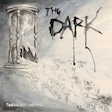 Sinking Into Madness is peak modern underground punk in that it almost sounds as if it was focused-grouped by the taste-making punk rock cognoscenti, so perfect are its many details and finishing touches, but it’s also a fantastic ripper no matter who (or what) made it. This almost certainly isn’t the first band from Los Angeles to call themselves “The Dark”, but this one seems to have siphoned off the power of all previous The Darks, learning from their mistakes and really just nailing aggressive, catchy, blackened-yet-melodic punk with this incredibly appealing set of songs. They meld death-rock, heavy-metal, hardcore and punk in a streamlined fashion, avoiding each genre’s generally-understood pitfalls and weaknesses. Your favorite songs by Code Of Honor, Crucifix, Legal Weapon, Judas Priest, G.I.S.M. and Christian Death? The Dark synthesizes it all here for your spike-braceleted pleasure. Such varied songwriting can pose a challenge to the vocalist, no matter if it’s punk or metal or some other third thing, but vocalist Irvin Kim aces the assignment with his expressive, multi-dimensional voice, mostly sounding like a hybrid of Crucifix’s Sothira Pheng, Iceage’s Elias Rønnenfelt and Darby Crash (of the Darby Crash Band). Everything is slurred, but in ways both soothingly melodic and snarlingly hot depending on the song’s demands. Sinking Into Madness is gonna be a favorite for a lot of different people this year, yours truly included.
Sinking Into Madness is peak modern underground punk in that it almost sounds as if it was focused-grouped by the taste-making punk rock cognoscenti, so perfect are its many details and finishing touches, but it’s also a fantastic ripper no matter who (or what) made it. This almost certainly isn’t the first band from Los Angeles to call themselves “The Dark”, but this one seems to have siphoned off the power of all previous The Darks, learning from their mistakes and really just nailing aggressive, catchy, blackened-yet-melodic punk with this incredibly appealing set of songs. They meld death-rock, heavy-metal, hardcore and punk in a streamlined fashion, avoiding each genre’s generally-understood pitfalls and weaknesses. Your favorite songs by Code Of Honor, Crucifix, Legal Weapon, Judas Priest, G.I.S.M. and Christian Death? The Dark synthesizes it all here for your spike-braceleted pleasure. Such varied songwriting can pose a challenge to the vocalist, no matter if it’s punk or metal or some other third thing, but vocalist Irvin Kim aces the assignment with his expressive, multi-dimensional voice, mostly sounding like a hybrid of Crucifix’s Sothira Pheng, Iceage’s Elias Rønnenfelt and Darby Crash (of the Darby Crash Band). Everything is slurred, but in ways both soothingly melodic and snarlingly hot depending on the song’s demands. Sinking Into Madness is gonna be a favorite for a lot of different people this year, yours truly included.
Marie Davidson Y.A.A.M. 12″ (Deewee)
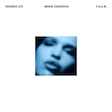 Dance track of the summer! I’ve loved Marie Davidson’s music for a while now, from the solo-credited productions to her albums with Essaie Pas; there’s this undeniable attitude she brings to her songs, far from the soulless femme avatars that think sounding disinterested and hot is all it takes. If Davidson has praise to offer, she sings it, and if she has smack to talk, she sneers it, no punches pulled. This leads us to “Y.A.A.M.”, which very well might be the defining Marie Davidson song. This twelve-inch contains the original mix, whose sensual, Egyptian Lover-esque thump is the perfect vehicle for her grand telling-off of industry leeches. She literally spells out an acronym of “fuck you” in her hilarious, biting, deadpan manner, and if you’re not fully behind her on it, I pray for your sorry soul. This record features an acapella mix for you to build your own track around (or to ensure you don’t mistake a word), as well as an extended Soulwax remix, those savvy DJs knowing a big-room tune when they hear one. They raise the pulse, juice up the percussive elements and stretch the builds for maximum club power. I can’t quite figure out what the title stands for – the closest I get is when she repeats “you are using me”, which isn’t quite right, but I’m probably missing something obvious, blinded by the sheer joy that comes with listening to it. “Fake positivity is as cringe as it gets” cuts through loud and clear, however, and if you want, you can sing along!
Dance track of the summer! I’ve loved Marie Davidson’s music for a while now, from the solo-credited productions to her albums with Essaie Pas; there’s this undeniable attitude she brings to her songs, far from the soulless femme avatars that think sounding disinterested and hot is all it takes. If Davidson has praise to offer, she sings it, and if she has smack to talk, she sneers it, no punches pulled. This leads us to “Y.A.A.M.”, which very well might be the defining Marie Davidson song. This twelve-inch contains the original mix, whose sensual, Egyptian Lover-esque thump is the perfect vehicle for her grand telling-off of industry leeches. She literally spells out an acronym of “fuck you” in her hilarious, biting, deadpan manner, and if you’re not fully behind her on it, I pray for your sorry soul. This record features an acapella mix for you to build your own track around (or to ensure you don’t mistake a word), as well as an extended Soulwax remix, those savvy DJs knowing a big-room tune when they hear one. They raise the pulse, juice up the percussive elements and stretch the builds for maximum club power. I can’t quite figure out what the title stands for – the closest I get is when she repeats “you are using me”, which isn’t quite right, but I’m probably missing something obvious, blinded by the sheer joy that comes with listening to it. “Fake positivity is as cringe as it gets” cuts through loud and clear, however, and if you want, you can sing along!
Dommer Cemetery Bread / Unless We’re Friends 7″ (no label)
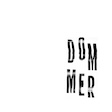 It’s odd that Dommer’s debut seven-inch doesn’t have one of those little “distributed by K” stickers on the poly-sleeve. The style displayed by this vellum-papered single is right up K’s alley, scruffy and simplified indie music that’s poppy, hand-crafted and smarter than it wants to let on. “Cemetery Bread”‘s melody is played on less than six guitar string and two buzzing synth pre-sets, a homespun ditty that feels on par with Tyvek at their least agitated. “Unless We’re Friends” is half as long, a gleeful indie-pop blast where the backing vocals are louder than the lead vocals, making me wonder if I ever heard The Mr. T Experience’s earliest demos or simply always wanted to. They could’ve let it rip for a third verse, but Dommer preferred to jam this one econo, and I’m certainly not going to complain about any efforts in reductionism. Cool to see that music as carefree, self-assured and obviously DIY is still coming out of Brooklyn these days; whatever paid influencer-sponsored content is polluting our social-media feeds right now, this most certainly ain’t that.
It’s odd that Dommer’s debut seven-inch doesn’t have one of those little “distributed by K” stickers on the poly-sleeve. The style displayed by this vellum-papered single is right up K’s alley, scruffy and simplified indie music that’s poppy, hand-crafted and smarter than it wants to let on. “Cemetery Bread”‘s melody is played on less than six guitar string and two buzzing synth pre-sets, a homespun ditty that feels on par with Tyvek at their least agitated. “Unless We’re Friends” is half as long, a gleeful indie-pop blast where the backing vocals are louder than the lead vocals, making me wonder if I ever heard The Mr. T Experience’s earliest demos or simply always wanted to. They could’ve let it rip for a third verse, but Dommer preferred to jam this one econo, and I’m certainly not going to complain about any efforts in reductionism. Cool to see that music as carefree, self-assured and obviously DIY is still coming out of Brooklyn these days; whatever paid influencer-sponsored content is polluting our social-media feeds right now, this most certainly ain’t that.
Free Tala Underwater Sounds To Lure The Fishes LP (Satatuhatta)
 If you’re gonna pick up a vast and desolate drone album allegedly designed to attract fish by playing it underwater, it should probably be from a country like Finland, don’t you think? I’m sure the drone artists of Prince Edward Island, Key West and Panama might be worthy of adding their voices to the conversation, but until I encounter those, I’m going to take Free Tala’s word on the subject. Of course, experimental Finnish sound-artist Juho Toivonen could be taking the piss with this record’s theme, but regardless of whether or not you’re trying to lure some plump Baltic herring, Sounds To Lure The Fishes is a deep, luxuriant drone excursion. Three big tracks, all of which stir up sediment through drones that slowly unfurl their lengthy tails, perpetually echoing in mid- to low-end stasis. Very much in the school of minimalist drone established by such greats as Alvin Lucier and LaMonte Young, these rich ambient flourishes are peaceful in their isolation, so deep underwater that sunlight is unable to render them in color. I’ve never been one for fishing (it’s all fun and games until there’s a hook piercing a fish’s mouth that needs to be removed), but I am partial to laying flat on my back and following the afternoon light as it slowly passes across my bedroom wall, an activity for which this Free Tala album is also well suited.
If you’re gonna pick up a vast and desolate drone album allegedly designed to attract fish by playing it underwater, it should probably be from a country like Finland, don’t you think? I’m sure the drone artists of Prince Edward Island, Key West and Panama might be worthy of adding their voices to the conversation, but until I encounter those, I’m going to take Free Tala’s word on the subject. Of course, experimental Finnish sound-artist Juho Toivonen could be taking the piss with this record’s theme, but regardless of whether or not you’re trying to lure some plump Baltic herring, Sounds To Lure The Fishes is a deep, luxuriant drone excursion. Three big tracks, all of which stir up sediment through drones that slowly unfurl their lengthy tails, perpetually echoing in mid- to low-end stasis. Very much in the school of minimalist drone established by such greats as Alvin Lucier and LaMonte Young, these rich ambient flourishes are peaceful in their isolation, so deep underwater that sunlight is unable to render them in color. I’ve never been one for fishing (it’s all fun and games until there’s a hook piercing a fish’s mouth that needs to be removed), but I am partial to laying flat on my back and following the afternoon light as it slowly passes across my bedroom wall, an activity for which this Free Tala album is also well suited.
Gen Gap Hanging Out With Gen Gap 7″ (MF)
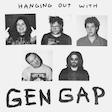 It really feels like you’re hanging with Philly’s own Gen Gap when blasting this undeniably hardcore-punk EP, featuring no songs suitable for radio play. It’s released on the Delco MF’s label, a label I had previously assumed was theirs and theirs alone, but seeing as Gen Gap boasts the membership of a few of those delightful fools, it starts to makes sense. Anyway, you get nine songs here, all of which are boisterous and irritated – how else could you deliver a song called “Fuckshit”? This is hardcore-punk, no capital H, which means that while speeds do vary, there is no room for karate-kicking to any of these tunes. Opener “Strut” has me thinking of speedy groups from the ’00s like Life’s Halt and Cut The Shit, but the aforementioned “Fuckshit” is punk, closer to Dark Thoughts or Career Suicide than Negative Approach. This is all to say that Gen Gap aren’t rewriting the punk rock playbook, but they’re pulling out a variety of its pages and making sure their pissed-off, energized attitude cuts through loud and clear. You catch an elbow to the face at a Gen Gap pit and laugh, not fume! I’m impressed they recorded it at Foto Club, an isolated Northeast Philly haven for punk in various forms, though I didn’t realize the club moonlighted as a recording studio too. That’s the beauty of having access to a giant old crumbly building on the outskirts of town – you can do whatever the hell you want with it!
It really feels like you’re hanging with Philly’s own Gen Gap when blasting this undeniably hardcore-punk EP, featuring no songs suitable for radio play. It’s released on the Delco MF’s label, a label I had previously assumed was theirs and theirs alone, but seeing as Gen Gap boasts the membership of a few of those delightful fools, it starts to makes sense. Anyway, you get nine songs here, all of which are boisterous and irritated – how else could you deliver a song called “Fuckshit”? This is hardcore-punk, no capital H, which means that while speeds do vary, there is no room for karate-kicking to any of these tunes. Opener “Strut” has me thinking of speedy groups from the ’00s like Life’s Halt and Cut The Shit, but the aforementioned “Fuckshit” is punk, closer to Dark Thoughts or Career Suicide than Negative Approach. This is all to say that Gen Gap aren’t rewriting the punk rock playbook, but they’re pulling out a variety of its pages and making sure their pissed-off, energized attitude cuts through loud and clear. You catch an elbow to the face at a Gen Gap pit and laugh, not fume! I’m impressed they recorded it at Foto Club, an isolated Northeast Philly haven for punk in various forms, though I didn’t realize the club moonlighted as a recording studio too. That’s the beauty of having access to a giant old crumbly building on the outskirts of town – you can do whatever the hell you want with it!
Hot Tubs Time Machine 50 Shades Of Marcus / No Thanks, Google Maps 7″ (Spoilsport)
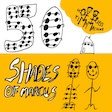 It’s already a little unfair that I sprung the band name “Hot Tubs Time Machine” on you and forced you to at least scan past the name, so if you’re still with me, I appreciate it! It’s not too much more of an ask that you read onward, then, because this Aussie duo is quite charming if you’ll give them half a chance like I did. It’s Daniel Twomey (of Deaf Wish) making the music and Marcus Rechsteiner (of UV Race) on the mic, and while minimalist indie post-punk isn’t an unprecedented foray into sound, Twomey and Rechsteiner come through with big winning personality that cannot be denied. “50 Shades Of Marcus” is further proof these two are in need of serious help coming up with names of things, but the song itself is quite fun, Rechsteiner breaking the third wall to explain to co-workers that yes, he’s a punk rocker in the evenings over the skeletal funk of Twomey’s bass/drums/synth. “No Thanks Google Maps” is upbeat, glistening and as invigorating as a Sunday morning stroll, though Rechsteiner takes the opportunity to use sarcastically taunt Google Maps, a (currently non-)sentient computer program. Hot Tubs Time Machine are like the comedic good-guy inverse of Sleaford Mods, the Michael Cera to their Jason Statham. Did I just accidentally cast the male leads of the next Hot Tub Time Machine sequel?
It’s already a little unfair that I sprung the band name “Hot Tubs Time Machine” on you and forced you to at least scan past the name, so if you’re still with me, I appreciate it! It’s not too much more of an ask that you read onward, then, because this Aussie duo is quite charming if you’ll give them half a chance like I did. It’s Daniel Twomey (of Deaf Wish) making the music and Marcus Rechsteiner (of UV Race) on the mic, and while minimalist indie post-punk isn’t an unprecedented foray into sound, Twomey and Rechsteiner come through with big winning personality that cannot be denied. “50 Shades Of Marcus” is further proof these two are in need of serious help coming up with names of things, but the song itself is quite fun, Rechsteiner breaking the third wall to explain to co-workers that yes, he’s a punk rocker in the evenings over the skeletal funk of Twomey’s bass/drums/synth. “No Thanks Google Maps” is upbeat, glistening and as invigorating as a Sunday morning stroll, though Rechsteiner takes the opportunity to use sarcastically taunt Google Maps, a (currently non-)sentient computer program. Hot Tubs Time Machine are like the comedic good-guy inverse of Sleaford Mods, the Michael Cera to their Jason Statham. Did I just accidentally cast the male leads of the next Hot Tub Time Machine sequel?
Muro Nuevo Dogma LP (Fuerza Ingobernable)
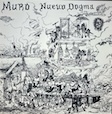 When a hardcore record arrives with a pencil sketch cover of oppressive political forces engaged in a whirlwind of violence part Where’s Waldo? part Hieronymus Bosch, you know it’s on the right track! Muro are a Colombian hardcore group and Nuevo Dogma is their fourth full-length, the second to be reviewed in these pages after Beach Impediment brought Ataque Hardcore Punk to us North American punks. Nuevo Dogma maintains the intensity, a frantic and European-indebted form of hardcore that finds a place between Raw Power and Anti-Cimex on the Hardcore Rawness Matrix Graph that exists only in my head. I’ll cop to not having spun their debut in a while, but Nuevo Dogma seems a little more metallically-inclined, with plenty of searing leads, galloping drums and stormy riffs. The b-side in particular gets into this, with “Destierro” sounding like Muro passed around a partied-on copy of Creeping Death before brainstorming new tunes. The recording also has that sort of second-hand aesthetic, sounding more like a tape that was dubbed multiple times than a fresh and booming studio recording, but this is punk, not the Eurovision Song Contest. My copy came with an enlarged poster of the cover art, its captivating black-and-white rendering practically begging me to bust out the colored pencils… what color should I use for the guillotine blood, dark red or maroon?
When a hardcore record arrives with a pencil sketch cover of oppressive political forces engaged in a whirlwind of violence part Where’s Waldo? part Hieronymus Bosch, you know it’s on the right track! Muro are a Colombian hardcore group and Nuevo Dogma is their fourth full-length, the second to be reviewed in these pages after Beach Impediment brought Ataque Hardcore Punk to us North American punks. Nuevo Dogma maintains the intensity, a frantic and European-indebted form of hardcore that finds a place between Raw Power and Anti-Cimex on the Hardcore Rawness Matrix Graph that exists only in my head. I’ll cop to not having spun their debut in a while, but Nuevo Dogma seems a little more metallically-inclined, with plenty of searing leads, galloping drums and stormy riffs. The b-side in particular gets into this, with “Destierro” sounding like Muro passed around a partied-on copy of Creeping Death before brainstorming new tunes. The recording also has that sort of second-hand aesthetic, sounding more like a tape that was dubbed multiple times than a fresh and booming studio recording, but this is punk, not the Eurovision Song Contest. My copy came with an enlarged poster of the cover art, its captivating black-and-white rendering practically begging me to bust out the colored pencils… what color should I use for the guillotine blood, dark red or maroon?
Nikolajev Lego Dub / Tongue Double 7″ (Sad Fun)
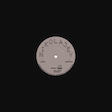 High-energy sampler workouts abound on this new single from Estonia’s Nikolajev. “Lego Dub” is a fresh and lively cut, skipping double-dutch to some crusty percussive sounds and airy melodies. Not really “dub” in any sense of the word, nor is the world’s most famous interlocking brick toy invoked in the sounds… seems like Nikolajev is simply having a little fun with words. “Lego Dub” smacks like one of those great early Joe singles, ratchety sounds interlocked and interwoven for some undeniable party fun. “Tongue Double”, on the other hand, is a digi-dub creeper of fine regard. It maintains an unhurried composure, like a kayak trip through a hidden waterway on an island paradise, colorful birds flittering above and the winking eye of a crocodile poking out of the water. Both tracks feel freshly created, the sort of thing that you’d think Nikolajev could whip up from scratch over and over, not a set of laptop wave-forms that were tweaked and modified over multiple weeks. Very much in line with the recent offerings from my favorite Estonian label, Porridge Bullet, which makes one wonder: is this stylish, left-field electro-house the dominant form of music in the capital city of Tallinn, and if so, how does an American apply for permanent residence?
High-energy sampler workouts abound on this new single from Estonia’s Nikolajev. “Lego Dub” is a fresh and lively cut, skipping double-dutch to some crusty percussive sounds and airy melodies. Not really “dub” in any sense of the word, nor is the world’s most famous interlocking brick toy invoked in the sounds… seems like Nikolajev is simply having a little fun with words. “Lego Dub” smacks like one of those great early Joe singles, ratchety sounds interlocked and interwoven for some undeniable party fun. “Tongue Double”, on the other hand, is a digi-dub creeper of fine regard. It maintains an unhurried composure, like a kayak trip through a hidden waterway on an island paradise, colorful birds flittering above and the winking eye of a crocodile poking out of the water. Both tracks feel freshly created, the sort of thing that you’d think Nikolajev could whip up from scratch over and over, not a set of laptop wave-forms that were tweaked and modified over multiple weeks. Very much in line with the recent offerings from my favorite Estonian label, Porridge Bullet, which makes one wonder: is this stylish, left-field electro-house the dominant form of music in the capital city of Tallinn, and if so, how does an American apply for permanent residence?
Molly Nilsson Un-American Activities LP (Night School)
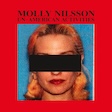 By my count, this is the tenth full-length from Molly Nilsson, and I have to wonder, has she switched up her gear once in all that time? Nilsson’s sound remains distinctive and more or less unwavering throughout her discography, and those same crystalline synths, ’80s slow-dance drum pads and karaoke-machine sound-packs are firmly in place on her newest, Un-American Activities. If you’re a fan of what she does (and I know I am), this is no complaint, though assuming we’re a record buying audience and not just a casual-streaming crowd (and I hope we are!), I leave up to you the appropriate number of Molly Nilsson records to maintain in your possession. I’m at five myself, and plan on spending a bit more time with Un-American Activities in order to suss out its subtle differences from the rest of the pack. As is her wont, the theme here is overt and unfiltered, which is refreshing in this moment where everyone knows things are terrible but so few pop artists have anything to specifically say about it. There’s a song called “Palestine” on here and I don’t have to tell you what side she’s on; “Jackboots Return” lashes out against her resident country of Germany’s revitalized interest in social oppression. She’s explicitly, unflinchingly political throughout, smacking down the United States in a manner you’d expect from an anarcho-crust group, though she’s taking sonic influence from jacking house music and electro new-beat, not Amebix. In 2024, no anti-imperialist dance-party soundtrack would be complete without Un-American Activities.
By my count, this is the tenth full-length from Molly Nilsson, and I have to wonder, has she switched up her gear once in all that time? Nilsson’s sound remains distinctive and more or less unwavering throughout her discography, and those same crystalline synths, ’80s slow-dance drum pads and karaoke-machine sound-packs are firmly in place on her newest, Un-American Activities. If you’re a fan of what she does (and I know I am), this is no complaint, though assuming we’re a record buying audience and not just a casual-streaming crowd (and I hope we are!), I leave up to you the appropriate number of Molly Nilsson records to maintain in your possession. I’m at five myself, and plan on spending a bit more time with Un-American Activities in order to suss out its subtle differences from the rest of the pack. As is her wont, the theme here is overt and unfiltered, which is refreshing in this moment where everyone knows things are terrible but so few pop artists have anything to specifically say about it. There’s a song called “Palestine” on here and I don’t have to tell you what side she’s on; “Jackboots Return” lashes out against her resident country of Germany’s revitalized interest in social oppression. She’s explicitly, unflinchingly political throughout, smacking down the United States in a manner you’d expect from an anarcho-crust group, though she’s taking sonic influence from jacking house music and electro new-beat, not Amebix. In 2024, no anti-imperialist dance-party soundtrack would be complete without Un-American Activities.
Michele Ottini Acqua Alla Gola 7″ (Pace In Stereo)
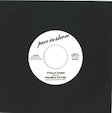 Got into the Swiss Pace In Stereo label after discovering the series of seven-inch singles they released for a guy named Narco Marco, tastefully updating the ’80s new-wave break-dance style with understated dance grooves, like a shadowy Swiss corollary to the Future Times and Mood Hut labels. The newest for the label comes from Michele Ottini, whose two tunes here fit in perfectly with the label’s coked-up, suit-and-tie ’80s dance vibes. “Acqua Alla Gola” is a catchy little instrumental Italo nugget, no diva necessary to imbue the tune with its emotional strife and sweat-glistened passion. I’m picturing Joe Yellow chasing the visage of a lost love down winding cobblestoned streets, his baggy silk suit flapping in the Mediterranean breeze. “Stella D’oro” is probably not an homage to the Italian cookie, but who knows for sure? It plays out like Ruth’s “Polaroïd/Roman/Photo” as sensually remixed by Asylum Party, once again instrumental and full of throwback glamour in each and every layer. Both sides are satisfyingly luxe instrumentals, though if you wanted to record your own vocal tracks over them and send it to the Pace In Stereo posse, who knows what could happen? Surely there are worse ways to scam your way into a trip to Switzerland.
Got into the Swiss Pace In Stereo label after discovering the series of seven-inch singles they released for a guy named Narco Marco, tastefully updating the ’80s new-wave break-dance style with understated dance grooves, like a shadowy Swiss corollary to the Future Times and Mood Hut labels. The newest for the label comes from Michele Ottini, whose two tunes here fit in perfectly with the label’s coked-up, suit-and-tie ’80s dance vibes. “Acqua Alla Gola” is a catchy little instrumental Italo nugget, no diva necessary to imbue the tune with its emotional strife and sweat-glistened passion. I’m picturing Joe Yellow chasing the visage of a lost love down winding cobblestoned streets, his baggy silk suit flapping in the Mediterranean breeze. “Stella D’oro” is probably not an homage to the Italian cookie, but who knows for sure? It plays out like Ruth’s “Polaroïd/Roman/Photo” as sensually remixed by Asylum Party, once again instrumental and full of throwback glamour in each and every layer. Both sides are satisfyingly luxe instrumentals, though if you wanted to record your own vocal tracks over them and send it to the Pace In Stereo posse, who knows what could happen? Surely there are worse ways to scam your way into a trip to Switzerland.
Peace De Résistance Lullaby For The Debris LP (La Vida Es Un Mus / Peace De)
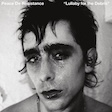 The cool thing about being in a band is feeling like part of a little gang, that hard-bonded communist/democratic/anarchic teamwork in pursuit of a common goal. The cool thing about doing a solo project is being able to go absolutely buck-wild without answering to anybody! That’s why I’m often disappointed in solo projects that sound as safe as regular bands, and also why I’m very pleased by the second album from Peace De Résistance, the solo project of Institute’s Mose Brown. He’s a great vocalist for scrappy punk, but as Peace De Résistance, it’s as if he’s embracing his delirious glam aspirations, dragged up and stepping out of the bedroom and into the alley for the first time, amazed at how gorgeous he feels. His shimmery, eyeshadowed, come-hither cover portrait fits the sound like a custom sequined jumpsuit, snug in the crotch but cut that way on purpose. The music here wobbles and struts, unafraid to cram some funk, cabaret, pop and new-wave in a confetti cannon before letting it explode in the street. Extremely fun and uninhibited stuff, even solely on a musical level – does Brown really play all these instruments himself? – but it’s his vocals that make Lullaby For The Debris a star-dusted standout. He sounds like he learned the English language by reading someone’s exaggerated description of it, savoring his vowels like tasty caramel candies and spitting his consonants like gristle, a brand-new elocution somewhere between the villainous 1930s radio character-actors and 1980s cartoon voice-actors, had they worked the door together at Studio 54. Brown’s having an absolute ball and you’re making a mistake if you don’t join in.
The cool thing about being in a band is feeling like part of a little gang, that hard-bonded communist/democratic/anarchic teamwork in pursuit of a common goal. The cool thing about doing a solo project is being able to go absolutely buck-wild without answering to anybody! That’s why I’m often disappointed in solo projects that sound as safe as regular bands, and also why I’m very pleased by the second album from Peace De Résistance, the solo project of Institute’s Mose Brown. He’s a great vocalist for scrappy punk, but as Peace De Résistance, it’s as if he’s embracing his delirious glam aspirations, dragged up and stepping out of the bedroom and into the alley for the first time, amazed at how gorgeous he feels. His shimmery, eyeshadowed, come-hither cover portrait fits the sound like a custom sequined jumpsuit, snug in the crotch but cut that way on purpose. The music here wobbles and struts, unafraid to cram some funk, cabaret, pop and new-wave in a confetti cannon before letting it explode in the street. Extremely fun and uninhibited stuff, even solely on a musical level – does Brown really play all these instruments himself? – but it’s his vocals that make Lullaby For The Debris a star-dusted standout. He sounds like he learned the English language by reading someone’s exaggerated description of it, savoring his vowels like tasty caramel candies and spitting his consonants like gristle, a brand-new elocution somewhere between the villainous 1930s radio character-actors and 1980s cartoon voice-actors, had they worked the door together at Studio 54. Brown’s having an absolute ball and you’re making a mistake if you don’t join in.
Poison Ruïn Confrere 12″ (Relapse)
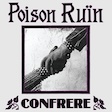 There’s an understandable hesitance in getting into dungeon-punk: you want to lose yourself to the fantasy of sword-wielding anarcho-knights disposing of fascist orcs through the ancient moors, but you don’t want to feel like a corny dork about it. Philadelphia’s Poison Ruïn have you covered, as they make the medieval D&D aesthetic palatable for even the staunchest haters of make-believe. They’ve got chain-mail and cloaks, but it somehow doesn’t feel like a costume so much as a righteous response to contemporary forms of oppression. That’s probably because their music takes the catchier elements of underground metal and works them into a moody, melodic punk tapestry. It calls to mind a lot of those first-wave Japanese hardcore bands who forayed into more goth-metallic realms as the ’80s progressed, like The Execute and Randy Uchida Group’s Deathly Fighter EP, though the gruff vocals of Mac Kennedy remain best suited to a cover of Doom’s “Police Bastard”, not Bauhaus or Mötley Crüe. If you like the Ren-Faire vibes that lead into “Execute”, you’ll be pleased to know that members of Poison Ruïn also released a Relapse LP under the alias Shadow Knell, a full-length’s worth of blackened historical-ambient, but it’s the furious punk heart of these tracks that gets me stoked to weave through the circle pit on my way to applying for a blacksmith apprenticeship.
There’s an understandable hesitance in getting into dungeon-punk: you want to lose yourself to the fantasy of sword-wielding anarcho-knights disposing of fascist orcs through the ancient moors, but you don’t want to feel like a corny dork about it. Philadelphia’s Poison Ruïn have you covered, as they make the medieval D&D aesthetic palatable for even the staunchest haters of make-believe. They’ve got chain-mail and cloaks, but it somehow doesn’t feel like a costume so much as a righteous response to contemporary forms of oppression. That’s probably because their music takes the catchier elements of underground metal and works them into a moody, melodic punk tapestry. It calls to mind a lot of those first-wave Japanese hardcore bands who forayed into more goth-metallic realms as the ’80s progressed, like The Execute and Randy Uchida Group’s Deathly Fighter EP, though the gruff vocals of Mac Kennedy remain best suited to a cover of Doom’s “Police Bastard”, not Bauhaus or Mötley Crüe. If you like the Ren-Faire vibes that lead into “Execute”, you’ll be pleased to know that members of Poison Ruïn also released a Relapse LP under the alias Shadow Knell, a full-length’s worth of blackened historical-ambient, but it’s the furious punk heart of these tracks that gets me stoked to weave through the circle pit on my way to applying for a blacksmith apprenticeship.
Quintron Commercial Jingles 7″ (Related)
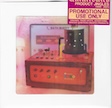 A couple weeks ago I was listening to an unlabeled CD-r mix and I was really digging one song, sounded like some sort of Back From The Grave teenage freak-out rock trio probably worth big bucks on the collector’s market. After some sleuthing I was able to determine that it was actually… Quintron covering KISS’s “God Of Thunder”. Whoops! There’s a beauty in not knowing what you’re listening to, and I have to wonder what other accidental Quintron exposure I’ve had through the years. This guy has been pretty much everywhere, an unsung national treasure for sure, and this new, kinda throwaway-by-design EP of his “commercial jingles” is another small piece in Quintron’s big colorful jigsaw puzzle. There are two ads for his “drum buddy” drum machine, the second adding a bit of manic old-school hip-hop flair; a peskily-catchy jingle for something called “bath buddy”; and a track about a singing house that I need to know more about, especially as the clip-clop drums had me thinking it was actually promoting a singing horse until I checked the label. Quintron is really the Billy Mays we need for these troubled times, peddling his own homemade dream-machines like Willy Wonka, if Willy Wonka ever toured with The Locust. Hell, whatever the bath buddy is, sign me up for two.
A couple weeks ago I was listening to an unlabeled CD-r mix and I was really digging one song, sounded like some sort of Back From The Grave teenage freak-out rock trio probably worth big bucks on the collector’s market. After some sleuthing I was able to determine that it was actually… Quintron covering KISS’s “God Of Thunder”. Whoops! There’s a beauty in not knowing what you’re listening to, and I have to wonder what other accidental Quintron exposure I’ve had through the years. This guy has been pretty much everywhere, an unsung national treasure for sure, and this new, kinda throwaway-by-design EP of his “commercial jingles” is another small piece in Quintron’s big colorful jigsaw puzzle. There are two ads for his “drum buddy” drum machine, the second adding a bit of manic old-school hip-hop flair; a peskily-catchy jingle for something called “bath buddy”; and a track about a singing house that I need to know more about, especially as the clip-clop drums had me thinking it was actually promoting a singing horse until I checked the label. Quintron is really the Billy Mays we need for these troubled times, peddling his own homemade dream-machines like Willy Wonka, if Willy Wonka ever toured with The Locust. Hell, whatever the bath buddy is, sign me up for two.
Rat Henry Material Pop Volume One LP (Minimum Table Stacks)
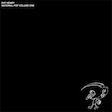 Minimum Table Stacks continues to reveal new underground sounds that we didn’t know we needed to hear. I’m still adjusting my spine to those Sheaves albums, and now I’ve got the debut from New York’s Rat Henry to enjoy as well. It’s the work of one Ray Zarnowitz, who doesn’t come with a resume of prior bands but a healthy career as an abstract painter, which, let’s face it, is way cooler baggage to bring to a dingy DIY post-punk bedroom project than a list of old band names. Perhaps it’s this perspective that helps Material Pop Volume One stick out in a sea of anti-social white-male post-punk projects – it doesn’t feel competitive against or even particularly in conversation with those other acts. Even when this all started in the very early ’80s, there were groups that seemed to be aware of each other, and outliers that don’t fit neatly into any narrative, and this record feels like the latter. Rat Henry’s songs are understated and subdued, little drum-machine / guitar vignettes with soft-spoken vocals, always teetering on the edge of some sort of electro-shock transgression but never quite hitting it. Reminds me of the collective M Squared artists in that Rat Henry also seems to be looking beyond typical creative confines, his moody DIY pop refusing to defile itself in order to get a point across. It’s a possibility that he’s an avid listener of Leonard Cohen and Lemon Kittens and wanted to merge the sounds of those two, but even more likely he put down his paintbrush for a minute and pondered what it’d be like to make a little music all his own.
Minimum Table Stacks continues to reveal new underground sounds that we didn’t know we needed to hear. I’m still adjusting my spine to those Sheaves albums, and now I’ve got the debut from New York’s Rat Henry to enjoy as well. It’s the work of one Ray Zarnowitz, who doesn’t come with a resume of prior bands but a healthy career as an abstract painter, which, let’s face it, is way cooler baggage to bring to a dingy DIY post-punk bedroom project than a list of old band names. Perhaps it’s this perspective that helps Material Pop Volume One stick out in a sea of anti-social white-male post-punk projects – it doesn’t feel competitive against or even particularly in conversation with those other acts. Even when this all started in the very early ’80s, there were groups that seemed to be aware of each other, and outliers that don’t fit neatly into any narrative, and this record feels like the latter. Rat Henry’s songs are understated and subdued, little drum-machine / guitar vignettes with soft-spoken vocals, always teetering on the edge of some sort of electro-shock transgression but never quite hitting it. Reminds me of the collective M Squared artists in that Rat Henry also seems to be looking beyond typical creative confines, his moody DIY pop refusing to defile itself in order to get a point across. It’s a possibility that he’s an avid listener of Leonard Cohen and Lemon Kittens and wanted to merge the sounds of those two, but even more likely he put down his paintbrush for a minute and pondered what it’d be like to make a little music all his own.
Red Cross 1981-1982 No Message LP (Beach Impediment)
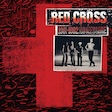 Great archival find here from Beach Impediment, once again proving that Virginia had more than its fair share of early hardcore gems that didn’t enter the typical hardcore history texts. This Red Cross features zero McDonald brothers; they accidentally shared the band name at essentially the same early time (as outlined by this album’s title), and featured guys who went on to form none other than White Cross. I’d guess that the first Californian Red Cross EP barely made it to the east coast by the time that Virginia’s Red Cross called it a day in the summer of 1982, so no harm no foul. Now that I’ve established the historical context, let’s get to the music, as Red Cross play one of my favorite early hardcore-punk styles: they often sound like the first year of Dischord if that crew of bands actually got drunk and maybe a little high, too. Red Cross has that same fuzzed-out SOA guitar sound, but they’re looser both musically and attitudinally, dipping into slower speeds that allow for their seething, smirking perspectives to shine through. Not sure if anyone else remembers Pittsburgh hardcore band Submachine from the ’90s, but that’s the vibe I’m picking up: kinda tough, kinda inebriated mid-tempo hardcore-punk that doesn’t take itself too seriously. If you told me you heard some Murder Junkies-era GG in there too, I wouldn’t call you crazy! No Message is a sizable collection – surely all the studio-recorded Red Cross you’ll ever need – and it’s capped off with an excellent tongue-in-cheek radio commercial spot to promote the band. This comes after my favorite tune on the record, “Public Assholes”, which takes George Thorogood’s aesthetic to filthy punk rock extremes. Topped off with a handsome photo-laden, informative booklet, you might walk away from this one thinking of the Cali Red Cross as the other Red Cross.
Great archival find here from Beach Impediment, once again proving that Virginia had more than its fair share of early hardcore gems that didn’t enter the typical hardcore history texts. This Red Cross features zero McDonald brothers; they accidentally shared the band name at essentially the same early time (as outlined by this album’s title), and featured guys who went on to form none other than White Cross. I’d guess that the first Californian Red Cross EP barely made it to the east coast by the time that Virginia’s Red Cross called it a day in the summer of 1982, so no harm no foul. Now that I’ve established the historical context, let’s get to the music, as Red Cross play one of my favorite early hardcore-punk styles: they often sound like the first year of Dischord if that crew of bands actually got drunk and maybe a little high, too. Red Cross has that same fuzzed-out SOA guitar sound, but they’re looser both musically and attitudinally, dipping into slower speeds that allow for their seething, smirking perspectives to shine through. Not sure if anyone else remembers Pittsburgh hardcore band Submachine from the ’90s, but that’s the vibe I’m picking up: kinda tough, kinda inebriated mid-tempo hardcore-punk that doesn’t take itself too seriously. If you told me you heard some Murder Junkies-era GG in there too, I wouldn’t call you crazy! No Message is a sizable collection – surely all the studio-recorded Red Cross you’ll ever need – and it’s capped off with an excellent tongue-in-cheek radio commercial spot to promote the band. This comes after my favorite tune on the record, “Public Assholes”, which takes George Thorogood’s aesthetic to filthy punk rock extremes. Topped off with a handsome photo-laden, informative booklet, you might walk away from this one thinking of the Cali Red Cross as the other Red Cross.
Scuba Cop Scuba Pop LP (Cut Lips Recordings)
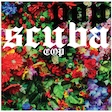 Love a good modern-day vanity pressing from some guy who is motivated enough on his own to make it all happen. That’s Ely Peter Morgan AKA Scuba Cop, a new-to-me artist that believes strongly in this project, even registering scubacop.com to ensure no one else steals his idea. From the back cover photo, Morgan looks like a biology teacher ready to go to his first BDSM night, but the music of Scuba Pop isn’t particularly perverse at all, instead opting for layers of heavy-fuzz guitars and basic pounding rhythms. Some songs sound like Suicide and Cramps as covered by Explosions In The Sky, whereas others are somewhere between Weezer and Hum, that ’90s alt-rock sound where big grungy guitars were key to the formula. With this sorta thing, the hooks have to aim for the fences and leave deep impressions – when they do, we know how glorious it can be – but Scuba Cop doesn’t quite reach those heights. The recording is compressed in a wall-of-sound way that feels nice in the moment but doesn’t leave a lasting impact. Of course, in this world where new music is as abundant and unvalued as tap water, it’s never been harder to leave such an impact, so I don’t hold it against Scuba Cop that he didn’t singlehandedly reinvent fuzzed-out alt-pop. So long as he doesn’t become or isn’t currently an actual cop, all is well.
Love a good modern-day vanity pressing from some guy who is motivated enough on his own to make it all happen. That’s Ely Peter Morgan AKA Scuba Cop, a new-to-me artist that believes strongly in this project, even registering scubacop.com to ensure no one else steals his idea. From the back cover photo, Morgan looks like a biology teacher ready to go to his first BDSM night, but the music of Scuba Pop isn’t particularly perverse at all, instead opting for layers of heavy-fuzz guitars and basic pounding rhythms. Some songs sound like Suicide and Cramps as covered by Explosions In The Sky, whereas others are somewhere between Weezer and Hum, that ’90s alt-rock sound where big grungy guitars were key to the formula. With this sorta thing, the hooks have to aim for the fences and leave deep impressions – when they do, we know how glorious it can be – but Scuba Cop doesn’t quite reach those heights. The recording is compressed in a wall-of-sound way that feels nice in the moment but doesn’t leave a lasting impact. Of course, in this world where new music is as abundant and unvalued as tap water, it’s never been harder to leave such an impact, so I don’t hold it against Scuba Cop that he didn’t singlehandedly reinvent fuzzed-out alt-pop. So long as he doesn’t become or isn’t currently an actual cop, all is well.
Staring Contest Staring Contest 7″ (Useful Artists)
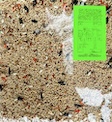 It’s not often I find myself physically gasping when I crack the seal on a record, but that’s exactly what happened when I sliced open the plastic on this seven-inch. The cover consists of cardboard with a thick layer of birdseed lacquered onto it, and the harsh and immediate off-gassing was the perfect introduction to this classically-minded improv-noise release. Staring Contest is the duo of Stewart Skinner (you know, from Zwangsbeglucktertum) and Zac Davis (a pivotal figure in the last quarter-century of underground music culture if there ever was one). It’s gotta be Davis on guitar and Skinner on whatever else, and it’s a really wild ride on two sides of filthy, splurting noise. Knobs are twiddled with furious abandon and the sound quality is staunchly lo-fi, and I dunno, it absolutely rules, in a way that feels in step with Evil Moisture, The Haters and Government Alpha, a raucous performance redolent of the free-wheeling ’90s noise underground. Their approach is busy and aggressive, but the sounds speak for themselves, no overt messaging at hand to try and show you just how much these guys love to transgress from the norm. They got the guy who runs Useful Artists to spend countless hours and braincells shellacking birdseed onto cardboard in the name of their twisted sound art… they’ve already won!
It’s not often I find myself physically gasping when I crack the seal on a record, but that’s exactly what happened when I sliced open the plastic on this seven-inch. The cover consists of cardboard with a thick layer of birdseed lacquered onto it, and the harsh and immediate off-gassing was the perfect introduction to this classically-minded improv-noise release. Staring Contest is the duo of Stewart Skinner (you know, from Zwangsbeglucktertum) and Zac Davis (a pivotal figure in the last quarter-century of underground music culture if there ever was one). It’s gotta be Davis on guitar and Skinner on whatever else, and it’s a really wild ride on two sides of filthy, splurting noise. Knobs are twiddled with furious abandon and the sound quality is staunchly lo-fi, and I dunno, it absolutely rules, in a way that feels in step with Evil Moisture, The Haters and Government Alpha, a raucous performance redolent of the free-wheeling ’90s noise underground. Their approach is busy and aggressive, but the sounds speak for themselves, no overt messaging at hand to try and show you just how much these guys love to transgress from the norm. They got the guy who runs Useful Artists to spend countless hours and braincells shellacking birdseed onto cardboard in the name of their twisted sound art… they’ve already won!
Swiftumz Simply The Best LP (Empty Cellar)
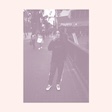 The space between “real band” and “solo recording project” is as fluid as gender, case in point the Bay Area’s Swiftumz, a band name that I have thankfully never had to say out loud in the company of strangers and only type out when necessary. (Nothing turns me into a grumpy conservative quicker than the letter s replaced with a z; please recommend a therapist willing to get paid in Will Over Matter and Graham Dunning LPs.) It seems as though this group orbits around singer-songwriter Christopher McVicker, and he’s got a solid bunch of friends to help shape his material into the fully-formed guitar-pop gems I’m hearing on Simply The Best. Look, there’s even Kelley Stoltz on the drums! These tunes make for a lovable bunch, slacker-rock ditties that call to mind the lighter side of Brother JT. The opening title track reminds me of Purling Hiss at their cutest, though I think Swiftumz wears that vibe even better, one of a bashful introvert who reveals a perfect catalog of pop songs on the last day of school. The ballads never fade into the background, and the speedy “Fallin’ Down Day” softly flexes, keeping things moving and listener interest high as penultimate track “Demoralized” offers some cozy DIY Brit-pop that’ll have you bobbing in your beanbag chair. I’m eventually going to have to say this band name out loud, aren’t I?
The space between “real band” and “solo recording project” is as fluid as gender, case in point the Bay Area’s Swiftumz, a band name that I have thankfully never had to say out loud in the company of strangers and only type out when necessary. (Nothing turns me into a grumpy conservative quicker than the letter s replaced with a z; please recommend a therapist willing to get paid in Will Over Matter and Graham Dunning LPs.) It seems as though this group orbits around singer-songwriter Christopher McVicker, and he’s got a solid bunch of friends to help shape his material into the fully-formed guitar-pop gems I’m hearing on Simply The Best. Look, there’s even Kelley Stoltz on the drums! These tunes make for a lovable bunch, slacker-rock ditties that call to mind the lighter side of Brother JT. The opening title track reminds me of Purling Hiss at their cutest, though I think Swiftumz wears that vibe even better, one of a bashful introvert who reveals a perfect catalog of pop songs on the last day of school. The ballads never fade into the background, and the speedy “Fallin’ Down Day” softly flexes, keeping things moving and listener interest high as penultimate track “Demoralized” offers some cozy DIY Brit-pop that’ll have you bobbing in your beanbag chair. I’m eventually going to have to say this band name out loud, aren’t I?
Total Hell Killed By Evil LP (Total Punk)
 Now you wait just a minute, Mr. Total Punk, you can’t fool me… this is metal! What gives? I suppose the people playing it are punks, hailing from acts like Sick Thoughts, Persuaders, Static Static and Trampoline Team, but that secondary association should still result in a disqualification, shouldn’t it? Killed By Evil is an over-the-top metal paean, the sort of thing that, had they focused on emulating only one specific band, would be due for a tribute-pun name like Black Sabbitch or Maiden United. Total Hell are a little less myopic in their metal approach; sure, it’s like 95% Venom / Celtic Frost / Possessed in there, but they’ve got some choppy Exodus breakdowns, some Sarcófago thrash and a cover image that appears to reveal a different corner of the haunted cemetery showcased on Mercyful Fate’s first album. A worshipful tribute to be sure, but if you need your metal to be played by guys who can list the past and present members of Queensrÿche from memory and would rather leave the bar in an angry huff than listen to Ramones or Sex Pistols, this ain’t it. I don’t think there are many of those purists left anymore, though, and considering how well-studied, enthusiastic and fully-committed Total Hell are to their demonic guise, I can see why even Total Punk would be persuaded to dabble in a little devil worship after dark.
Now you wait just a minute, Mr. Total Punk, you can’t fool me… this is metal! What gives? I suppose the people playing it are punks, hailing from acts like Sick Thoughts, Persuaders, Static Static and Trampoline Team, but that secondary association should still result in a disqualification, shouldn’t it? Killed By Evil is an over-the-top metal paean, the sort of thing that, had they focused on emulating only one specific band, would be due for a tribute-pun name like Black Sabbitch or Maiden United. Total Hell are a little less myopic in their metal approach; sure, it’s like 95% Venom / Celtic Frost / Possessed in there, but they’ve got some choppy Exodus breakdowns, some Sarcófago thrash and a cover image that appears to reveal a different corner of the haunted cemetery showcased on Mercyful Fate’s first album. A worshipful tribute to be sure, but if you need your metal to be played by guys who can list the past and present members of Queensrÿche from memory and would rather leave the bar in an angry huff than listen to Ramones or Sex Pistols, this ain’t it. I don’t think there are many of those purists left anymore, though, and considering how well-studied, enthusiastic and fully-committed Total Hell are to their demonic guise, I can see why even Total Punk would be persuaded to dabble in a little devil worship after dark.
208 Possession 7″ (Goodbye Boozy)
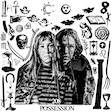 Italy’s Goodbye Boozy remains completely impervious to any modern trends, flavors or interests, continuing to churn out brain-dead garage-punk on seven-inch singles. Do they even know Covid happened and Donald Trump was president, or that stores don’t stock new seven-inch singles anymore? I love their unwavering commitment to the form, and they found a perfect new protegé here in Detroit’s 208. They take the “in-the-red” ethos to its breaking point, the guitar so severely overblown that I honestly feel bad for their amps. If Lux Interior were in the studio, I can picture him pulling 208 aside and asking them, “isn’t that a little much?” I’m of the position that it’s certainly not a little much, and the distorted-to-hell recording gives a vibrant flavor to this guitar-drums duo. Rusted Shut is the only group that comes to mind as a realistic comparison, though 208 attempt to boogie, not wallow, through these four cuts, unaware of the smoke emanating from their gear. A harmonica is credited, and while I assumed it was buried deep in there somewhere, as discernible as a contact lens in the snow, it actually shows up for some hearty blasts on the final tune, “Sunshine”, a battle-tank rolled out against Tetuzi Akiyama’s automatic rifle. My praise to everyone involved.
Italy’s Goodbye Boozy remains completely impervious to any modern trends, flavors or interests, continuing to churn out brain-dead garage-punk on seven-inch singles. Do they even know Covid happened and Donald Trump was president, or that stores don’t stock new seven-inch singles anymore? I love their unwavering commitment to the form, and they found a perfect new protegé here in Detroit’s 208. They take the “in-the-red” ethos to its breaking point, the guitar so severely overblown that I honestly feel bad for their amps. If Lux Interior were in the studio, I can picture him pulling 208 aside and asking them, “isn’t that a little much?” I’m of the position that it’s certainly not a little much, and the distorted-to-hell recording gives a vibrant flavor to this guitar-drums duo. Rusted Shut is the only group that comes to mind as a realistic comparison, though 208 attempt to boogie, not wallow, through these four cuts, unaware of the smoke emanating from their gear. A harmonica is credited, and while I assumed it was buried deep in there somewhere, as discernible as a contact lens in the snow, it actually shows up for some hearty blasts on the final tune, “Sunshine”, a battle-tank rolled out against Tetuzi Akiyama’s automatic rifle. My praise to everyone involved.
Yambag Mindfuck Ultra 12″ (11 PM / Convulse)
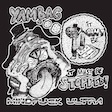 Yambag’s Mindfuck Ultra would’ve been one of my favorite records in 1998. That’s no diss, as my tastes in hardcore-punk haven’t changed a whole heck of a lot since then! They blast in a free-wheeling fast-core fashion, the sort of thing I’d have expected from Slap A Ham, Sound Pollution or Prank. While some of the practitioners of that sound can veer towards crusty heaviness or technical trickery, Cleveland’s Yambag rage in a furiously downhill fashion, brakes fully severed. It reminds me of Rupture, DRI and Extortion throughout, delivered with the ripped-knee jeans and high-jumps of What Happens Next?. “Clocked In” has a pretty typical grind-y riff – I know Fuck On The Beach have used it as well – and Yambag put it to excellent use in their very own way. I love that they don’t dilute their approach with breakdowns, mosh parts (or even hints of mosh parts), or anything besides ultra- and high-speed blasting. They get right into it and maintain that frenzied approach through the well-deserved breather of a final track, “El Funeral De Mr. E “, which calls to mind a dungeon-synthed Exit Hippies. If you love fast American hardcore that refuses to cater to anyone besides true speed-core freaks, the delicately-named Yambag should be one of your top contemporary considerations.
Yambag’s Mindfuck Ultra would’ve been one of my favorite records in 1998. That’s no diss, as my tastes in hardcore-punk haven’t changed a whole heck of a lot since then! They blast in a free-wheeling fast-core fashion, the sort of thing I’d have expected from Slap A Ham, Sound Pollution or Prank. While some of the practitioners of that sound can veer towards crusty heaviness or technical trickery, Cleveland’s Yambag rage in a furiously downhill fashion, brakes fully severed. It reminds me of Rupture, DRI and Extortion throughout, delivered with the ripped-knee jeans and high-jumps of What Happens Next?. “Clocked In” has a pretty typical grind-y riff – I know Fuck On The Beach have used it as well – and Yambag put it to excellent use in their very own way. I love that they don’t dilute their approach with breakdowns, mosh parts (or even hints of mosh parts), or anything besides ultra- and high-speed blasting. They get right into it and maintain that frenzied approach through the well-deserved breather of a final track, “El Funeral De Mr. E “, which calls to mind a dungeon-synthed Exit Hippies. If you love fast American hardcore that refuses to cater to anyone besides true speed-core freaks, the delicately-named Yambag should be one of your top contemporary considerations.
Zaliva-D 萬物枯萎 Total Withered LP (WV Sorcerer Productions)
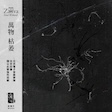 Lots of electronic musicians trying to come across as unhinged occult freaks, but Beijing’s Zaliva-D… this is true creepy-freak music, sure to make your head bob as much as your skin crawl. Their records have seeped into the underground for a few years now, thanks to labels like Knekelhuis and SVBKVLT, and this attractive new collection maintains their top-notch pedigree. Sonically, they sit in the company of heavy-hitters like Shackleton, Coil and Vessel, but Zaliva-D tracks never swing or slide, they pulsate and ooze. These tracks grind forward relentlessly, but not with any typical heaviness or bass-centric brutality; the beauty lies in the sounds themselves, conjuring digitized moans of tiny animals, electro-industrial rituals and the muffled chants of indigenous species that thrive in inhospitable piles of sand. I can’t help but think of maggots, larvae and other disgusting natural processes when these songs relentlessly churn forward, even if the sounds themselves are clearly synthetic. I suppose those are probably real vocals in “Eye-Flowers”, but they’re condensed and spurting in a most peculiar way, Zaliva-D’s signature style. The rhythms groove like a screwed and chopped Drexciya, tendon-snapping beats dead-bolted in place, but whereas you might expect some light bondage and latex fetish behavior from a similarly-positioned downtempo industrial-synth group, Zaliva-D open their mouths to expose a pile of wriggling worms alongside their black leather body harnesses. And they love it!
Lots of electronic musicians trying to come across as unhinged occult freaks, but Beijing’s Zaliva-D… this is true creepy-freak music, sure to make your head bob as much as your skin crawl. Their records have seeped into the underground for a few years now, thanks to labels like Knekelhuis and SVBKVLT, and this attractive new collection maintains their top-notch pedigree. Sonically, they sit in the company of heavy-hitters like Shackleton, Coil and Vessel, but Zaliva-D tracks never swing or slide, they pulsate and ooze. These tracks grind forward relentlessly, but not with any typical heaviness or bass-centric brutality; the beauty lies in the sounds themselves, conjuring digitized moans of tiny animals, electro-industrial rituals and the muffled chants of indigenous species that thrive in inhospitable piles of sand. I can’t help but think of maggots, larvae and other disgusting natural processes when these songs relentlessly churn forward, even if the sounds themselves are clearly synthetic. I suppose those are probably real vocals in “Eye-Flowers”, but they’re condensed and spurting in a most peculiar way, Zaliva-D’s signature style. The rhythms groove like a screwed and chopped Drexciya, tendon-snapping beats dead-bolted in place, but whereas you might expect some light bondage and latex fetish behavior from a similarly-positioned downtempo industrial-synth group, Zaliva-D open their mouths to expose a pile of wriggling worms alongside their black leather body harnesses. And they love it!
Zombi Direct Inject LP (Relapse)
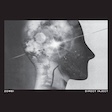 Genre pioneers are often cursed with not receiving the rightful benefits of breaking new musical ground. I feel like Zombi is a case in point, as there was truly no one else coming from a DIY punk background making music directly inspired by John Carpenter, Goblin and giallo soundtracks when they showed up way back in 2001, and yet other, newer acts have reaped greater success and fame in their wake. Perhaps they don’t care at all and I’m pointlessly mad on their behalf, but regardless of how Zombi feel about their station in the musical universe, they continue to deliver the goods with sharp attention to detail (both production- and songwriting-wise). Direct Inject is their ninth full-length, and it’s as pitch-perfect as you can get in the world of instrumental, synth-led, imaginary-movie soundtracking. They lean further into Airwolf / Chuck Norris / Jean-Claude Van Damme / Jan Hammer / Edgar Winter Group’s “Frankenstein” territory here, with big pulsing synths acting as ominous warnings while steady hypnotic grooves cruise toward the sunset horizon. “So Mote It Be” is strapped with a barbed guitar riff – big “final showdown at the loading docks at midnight” energy – but the surprising standout for me is far and away “Sessuale II”, an extremely steamy and sax-ified Balearic love scene that wouldn’t be out of place on Music From Memory, its fretless bass and soothing chords extremely out of place on Relapse Records. I’m not looking forward to the inevitable new-jacks destined to ape Zombi’s Direct Inject style, but I’m enjoying the hell out of this album in the meantime.
Genre pioneers are often cursed with not receiving the rightful benefits of breaking new musical ground. I feel like Zombi is a case in point, as there was truly no one else coming from a DIY punk background making music directly inspired by John Carpenter, Goblin and giallo soundtracks when they showed up way back in 2001, and yet other, newer acts have reaped greater success and fame in their wake. Perhaps they don’t care at all and I’m pointlessly mad on their behalf, but regardless of how Zombi feel about their station in the musical universe, they continue to deliver the goods with sharp attention to detail (both production- and songwriting-wise). Direct Inject is their ninth full-length, and it’s as pitch-perfect as you can get in the world of instrumental, synth-led, imaginary-movie soundtracking. They lean further into Airwolf / Chuck Norris / Jean-Claude Van Damme / Jan Hammer / Edgar Winter Group’s “Frankenstein” territory here, with big pulsing synths acting as ominous warnings while steady hypnotic grooves cruise toward the sunset horizon. “So Mote It Be” is strapped with a barbed guitar riff – big “final showdown at the loading docks at midnight” energy – but the surprising standout for me is far and away “Sessuale II”, an extremely steamy and sax-ified Balearic love scene that wouldn’t be out of place on Music From Memory, its fretless bass and soothing chords extremely out of place on Relapse Records. I’m not looking forward to the inevitable new-jacks destined to ape Zombi’s Direct Inject style, but I’m enjoying the hell out of this album in the meantime.

